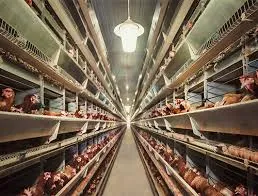Advanced Vacuum Sealing Technology for Effective Packaging Solutions in Food Industry Applications
Aug . 11, 2024 12:28 Back to list
Advanced Vacuum Sealing Technology for Effective Packaging Solutions in Food Industry Applications
The Importance of Vacuum Sealing Packaging Machines
In today's fast-paced world, maintaining the freshness and quality of food and other products is more critical than ever. With the rise of global trade and the increasing demand for packaged goods, vacuum sealing packaging machines have become an essential tool in various industries. These machines not only extend the shelf life of products but also ensure that they remain uncontaminated and preserved for longer periods.
Vacuum sealing is a process that removes air from the packaging before sealing it, creating a vacuum around the product. This process significantly slows down the growth of bacteria, mold, and yeast, which are responsible for food spoilage. By eliminating air, vacuum sealing also helps in retaining the moisture and flavor of the product, enhancing its overall quality. This technology has applications in the food industry, medical field, retail, and even for personal use.
Advantages of Vacuum Sealing Machines
1. Extended Shelf Life One of the primary benefits of vacuum sealing machines is their ability to extend the shelf life of products. For food items, vacuum sealing can prolong freshness from weeks to months. For instance, vacuum-sealed meats can last three to five times longer than traditionally packaged meats.
2. Cost Efficiency By reducing spoilage, businesses can save significant amounts of money in wasted products. For households, vacuum sealing leftover food allows for smarter meal planning and minimizes food waste, leading to better budgeting and economic savings.
3. Space-Saving Vacuum-sealed packages are compact and can be easily stored. This is particularly advantageous for both businesses and individual consumers with limited storage space. Whether it's a restaurant kitchen or a home refrigerator, vacuum sealing optimizes available space.
4. Protection from Contaminants The sealed environment created by vacuum sealing protects products from dirt, moisture, and other contaminants. This is crucial in industries such as pharmaceuticals and electronics, where product integrity must be maintained.
vacuum sealing packaging machine

5. Marination and Flavor Enhancement For culinary enthusiasts, vacuum sealing can be used to marinate food faster and more effectively. The absence of air allows for deeper penetration of marinades and spices, resulting in tastier meals.
Applications in Various Industries
Vacuum sealing machines are widely used across multiple sectors. In the food industry, they are employed in restaurants, grocery stores, and food packaging companies. They are also vital for sous-vide cooking, a method of slowly cooking vacuum-sealed food in a water bath. In the medical domain, vacuum sealing is used for packaging sterile instruments and supplies, maintaining their sterility until use.
Moreover, industries dealing with precious items such as antiques or electronics also utilize vacuum sealing as a means to protect valuable products from environmental damage, moisture, and oxidation. In personal use, vacuum sealing machines are popular among home cooks and gardeners for preserving seasonal produce.
Choosing the Right Vacuum Sealing Machine
When selecting a vacuum sealing machine, several factors should be considered, including the volume of products to be sealed, the type of packaging required (such as bags or canisters), and the machine's features (such as automated settings and durability). Businesses may opt for commercial-grade machines designed for heavy usage, while home cooks might prefer more compact and user-friendly models.
Conclusion
In summary, vacuum sealing packaging machines are a revolutionary technology that brings numerous benefits to a variety of industries. By prolonging shelf life, protecting against contaminants, saving space, and enhancing flavor, these machines are a valuable investment for both commercial operations and home kitchens. As the demand for efficient and effective packaging solutions continues to rise, the role of vacuum sealing machines will undoubtedly grow, making them a staple in modern packaging practices.
-
Hot Sale 24 & 18 Door Rabbit Cages - Premium Breeding Solutions
NewsJul.25,2025
-
Automatic Feeding Line System Pan Feeder Nipple Drinker - Anping County Yize Metal Products Co., Ltd.
NewsJul.21,2025
-
Automatic Feeding Line System Pan Feeder Nipple Drinker - Anping County Yize Metal Products Co., Ltd.
NewsJul.21,2025
-
Automatic Feeding Line System - Anping Yize | Precision & Nipple
NewsJul.21,2025
-
Automatic Feeding Line System - Anping Yize | Precision & Nipple
NewsJul.21,2025
-
Automatic Feeding Line System-Anping County Yize Metal Products Co., Ltd.|Efficient Feed Distribution&Customized Animal Farming Solutions
NewsJul.21,2025






